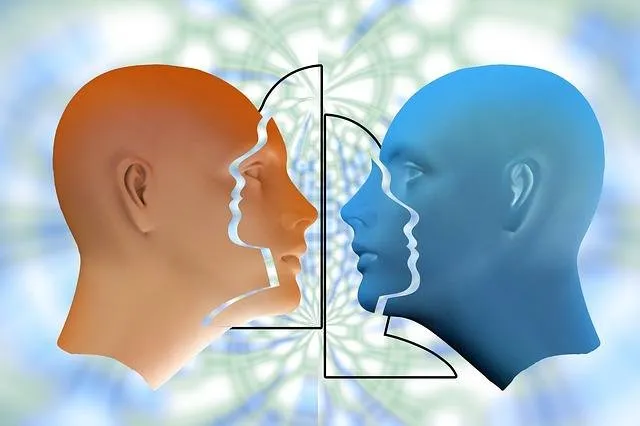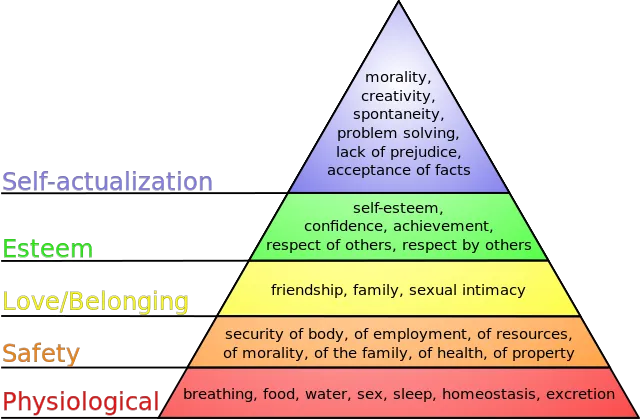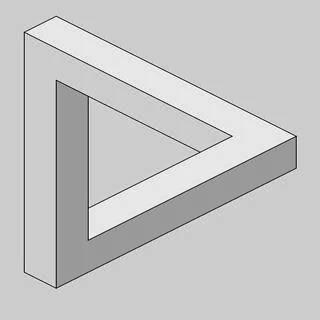Perceptions can be incorrect, wrong and untrue in comparison to reality. A perception of what is right doesn't mean something is right. Perception and thinking can be and is influenced or altered by others around us and what we have been taught by people in the past.

Source
The bystander effect is a simple demonstration of how people conform to the environment of others around them. People become ambiguous as to being able to discern right from wrong and act upon it to do something. The cohesion of the group leads them to diffuse responsibility to others. The groupthink psychological phenomenon is also related. We are easily influenced by others to think in the same ways as they do. Social pressures are strong influences on our psychological processing.
Having empathy towards another being done harm, and aligning ourselves with them can be a hard position to take. Unless we are personally suffering, we often don't value the suffering of others enough to do something about it.
Knowing that it is right to stop others doing harm puts us at risk of harm as well. But there are consequences for initiating unjust and undue aggression and harm as violence to others. If there are no consequences, a person who lacks moral understanding can just keep doing what they do without any incentive to not do so.
Consequences teach. A child putting their hand on a hot stove learns what not to do through the consequences of their actions. You can tell a child something is hot and not to touch it or they will get burned, but they won't now what that means for certain until they experience it. The truth of the claim needs to be understand in reality, not simply believed in. The knowledge is acquired through reality demonstrating it, not by only being told, thinking about it or believing it, but through gnosis.
Likewise, if you haven't been "burned" in life, betrayed or fooled, you might not really understand what it means until you experience it. Sometimes suffering is required to teach a lesson we don't want to understand. Cause and effect of our actions, or the actions of others, are part of natural laws. Understanding how actions create consequential harm is part of natural moral law.
To understand the objective difference between right and wrong is required to resolve the small and larger messes in the world. We have to understand what the higher moral ground is, and want to take it. Sometimes there is a cost to pay, such as suffering to do what is right in the face of wrong and those who would harm us for trying to do what's right. The higher moral road is hard, not easy, due to the opposition of degraded consciousnesses who fight to defend lower moral positions, fighting to protect what they personally gain from supporting it.
Our minds are under mind control, focusing on lower consciousness aspects of life instead of higher consciousness living. Media pollutes our minds, and food pollutes our bodies and minds. Media distracts us. Governments lie. And people spread the distractions, lies and misinformation because they don't know any better.
Rather that live according to our own perceptions of what is moral, we need to learn what is moral and live according to that rather than our falsified perceptions. We need to be willing to let go of the falsity, wants, desires and wishes we have that aren't based on moral grounds. Perception of morality is subjectively determined with ignorance of moral principles. The reality of morality is objectively determined by recognizing the harm that actions create which violate moral principles.
Look at the Nazis to see how perceptions of morality can lead people to justify anything they believe to be "right" or correct. There illusory beliefs that warp objective moral understanding, just as there are illusions that warp understanding objective reality.
There is a difference between what someone think is right to do and what is within their rights to do. What we have a right to do is based on what is morally right, upright, righteous, just. Exercising a right means not doing anything wrong. Harm none, and do what you will under moral law.
Acting under moral law is acting within the higher will of our natural right to do something. Stepping on other's rights is dropping out of higher will authority. Aligning with moral law is to act in accordance with a higher will instead of a lower will. Acting through a higher will is acting as a higher self, to self-actualize ourselves under the authority of moral law.

Source
If we want to stop collectively co-creating a "hell" on earth, then it's up to each person to understand morality and apply it in their lives. To change the external world, we must first change ourselves internally by the way in which we perceive and understand. Our perceptions need to be grounded in reality, not in fantasy or belief. Some people avoid admitting they are wrong and would almost rather die than face the fact that they bought into a false ideology. They stayed clinging to beliefs because that's what they know and use to formulate their worldview.
Thank you for your time and attention. Peace.
If you appreciate and value the content, please consider: Upvoting, Sharing or Reblogging below.
 me for more content to come!
me for more content to come!
My goal is to share knowledge, truth and moral understanding in order to help change the world for the better. If you appreciate and value what I do, please consider supporting me as a Steem Witness by voting for me at the bottom of the Witness page.



